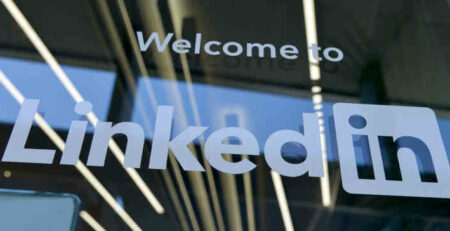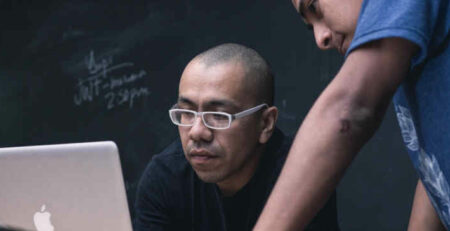Crafting Connections: Tips for Hiring Community Managers
Community managers play a pivotal role in bridging the gap between a brand and its audience. They cultivate relationships, build brand loyalty, and often serve as the front line of customer service and engagement. As businesses increasingly recognize the value of community-driven growth, the demand for adept community managers is on the rise. This guide provides comprehensive insights into hiring the right community manager to foster meaningful connections within your community.
Firstly, understanding the multifaceted role of a community manager is crucial. They are not just social media managers; they are brand ambassadors, customer service reps, and sometimes, crisis handlers. Their responsibilities can range from generating content and managing social media accounts to organizing events and gathering customer feedback. A creative staffing agency can help identify candidates who not only have the necessary skills but also fit well with your company culture.
Secondly, the importance of cultural fit cannot be overstated. Community managers often set the tone for online interactions and need to embody the core values and ethos of your brand. They must resonate with both your team and your audience, making cultural alignment just as important as skill proficiency.
Thirdly, when hiring a community manager, consider their ability to use tools and platforms effectively. From social media tools to customer relationship management (CRM) systems, their technical proficiency will significantly enhance their efficiency and effectiveness. For insights on choosing the best CRM tools, read CRM Software Guide for Creative Agencies.
Moreover, the ability to analyze data and draw actionable insights is a valuable skill for a community manager. They should be able to monitor engagement metrics, track campaign performance, and use data to refine strategies. This analytical approach can lead to more targeted and successful community interactions.
Fifthly, excellent communication skills are non-negotiable. Community managers must be adept at both written and verbal communication, capable of crafting clear, engaging, and grammatically correct messages quickly. They must also be skilled in conflict resolution and able to maintain professionalism in all situations.
Additionally, creativity is a key attribute of a successful community manager. They need to continually generate fresh ideas for content, events, and campaigns that can engage the community and strengthen the brand. A creative staffing agency specializes in finding individuals who can bring originality and a fresh perspective to your team.
Seventh, consider the scalability of the role. As your community grows, the responsibilities of your community manager will likely expand. Hiring someone with the potential to manage increasing complexity and volume of interactions is essential for long-term success.
Eighth, don’t overlook the importance of experience. While budding talent can be valuable, experienced community managers will likely have a proven track record of building and maintaining strong communities. They can bring best practices and industry insights that only come from years of hands-on experience.
Ninth, the interview process should be thorough. It should not only assess skills and experience but also involve scenario-based questions that reveal the candidate’s thought process and problem-solving abilities. For tips on conducting effective interviews, click 6 Red Flags to Watch Out for in a Job Interview.
Finally, consider using a creative staffing agency like icreatives to streamline the hiring process. They can help you find candidates who are not just qualified but are the best fit for your company’s specific needs. To find out more about how a staffing agency can assist you, visit How to Know When You Need to Use a Staffing Agency.
Most Asked Questions About Hiring Community Managers
- What are the essential skills to look for in a community manager?
- How do you assess cultural fit during the hiring process?
- What are the best interview techniques for hiring a community manager?
- How important is experience versus potential in hiring a community manager?
- What tools should a community manager be proficient in?
- How can a creative staffing agency aid in finding the right community manager?
- What are common mistakes to avoid when hiring a community manager?

What are the essential skills to look for in a community manager?
When hiring a community manager, several core skills are crucial for success in the role. First and foremost, excellent communication skills are essential. They must be able to express ideas clearly and interact professionally with community members. Strong writing skills are particularly important, as much of their communication will be in written form, from social media posts to email correspondence.
Secondly, a good community manager must have robust organizational skills. They often juggle multiple tasks—from managing social media accounts to responding to customer inquiries and organizing community events. The ability to prioritize tasks and manage time effectively is critical.
Thirdly, empathy and the ability to engage with people on a personal level are vital. Community managers need to understand the community’s needs and respond in ways that foster positive relationships. They should be approachable and personable, capable of building trust and rapport with community members.
Technical skills also play a significant role. Familiarity with social media platforms, content management systems, and basic graphic design tools is necessary. They should be able to navigate these tools efficiently to create engaging content and manage posts.
Analytical skills are equally important. A community manager should be able to interpret community engagement data and use these insights to optimize strategies. Understanding what content performs well, which campaigns drive engagement, and how to measure the success of community initiatives is crucial.
Creativity is another essential skill. The ability to come up with innovative ideas for campaigns, discussions, and content can set a community manager apart. They need to keep the community engaged continuously, and fresh, creative ideas are key to maintaining interest and excitement.
Problem-solving skills are necessary, especially when dealing with community conflicts or crises. A community manager should be able to quickly identify problems, come up with effective solutions, and communicate them clearly to the community.
Leadership qualities are also beneficial. As the community grows, managers might need to handle a team or coordinate with multiple departments. Strong leadership skills will ensure they can manage these responsibilities effectively.
Lastly, a passion for the brand and its community is indispensable. A community manager who is genuinely enthusiastic about the brand’s mission and values will naturally foster a positive community environment that encourages loyalty and engagement.
How do you assess cultural fit during the hiring process?
Assessing cultural fit is a critical aspect of the hiring process for a community manager. The first step is to clearly define your company’s culture. Understand the core values, behaviors, and practices that characterize your organization. This clarity will help you identify the traits you need in a community manager who can embody and promote these values effectively.
During the interview process, ask questions that reveal how the candidate’s values align with your company’s. Questions about how they have handled specific situations in the past or their approach to teamwork and communication can provide insights into their fit with your culture.
Behavioral interviews are particularly effective in assessing cultural fit. They allow candidates to demonstrate how they have applied their skills and values in real-world scenarios, giving you a clearer picture of how they might perform in your company.
Consider involving various team members in the interview process. This can include people who the community manager will work directly with or even cross-functional team members. Their diverse perspectives can help assess whether the candidate would integrate well with the team.
It’s also useful to introduce potential hires to the broader team or involve them in a social or work-related activity. Observing how they interact with potential colleagues and adapt to social settings can offer additional clues about their compatibility with your team’s culture.
References can also be a valuable source of information when assessing cultural fit. Speaking to former employers or colleagues can provide additional context on how the candidate has contributed to previous team environments.
Another technique is to present realistic job previews during the interview process. This involves showing the candidate what their day-to-day responsibilities will look like and observing their reactions. Their responses can indicate whether they feel comfortable and enthusiastic about the work environment and tasks.
Additionally, it’s important to communicate your company’s culture clearly and transparently throughout the hiring process. This not only helps candidates self-assess their fit but also attracts those who are aligned with your organization’s values.
Finally, trust your instincts. Sometimes, the interactions during the interview process can give you an intuitive sense of whether a candidate will thrive within your company’s culture.
For more on enhancing team dynamics and cultural fit, visit Creating a Sense of Community in the Workplace.

What are the best interview techniques for hiring a community manager?
Effective interviewing is crucial for selecting the right community manager. Start with a structured interview process that includes a mix of technical, situational, and behavioral questions. This structure ensures that you cover all necessary aspects of the candidate’s skills and personality.
Use competency-based questions to assess the candidate’s skills and experience directly related to community management. Questions like “Can you describe a successful campaign you managed?” or “How do you handle negative feedback online?” are telling.
Incorporate situational questions to evaluate the candidate’s problem-solving and critical thinking abilities. For example, ask how they would manage a sudden PR crisis or increase engagement in a dwindling community. Their responses will provide insight into their practical skills and adaptability.
Behavioral questions are equally important as they help gauge how the candidate has handled situations in the past, which is often a good indicator of how they will handle situations in the future. Questions such as “Tell me about a time you had to build a relationship with a difficult stakeholder,” or “Describe a situation where you had to mediate a conflict within a community,” can be very revealing.
Panel interviews can be particularly effective, as they allow different members of your team to get a sense of the candidate’s capabilities and fit within the team. This method also helps in reducing individual interviewer bias.
Practical tests, such as asking the candidate to create a mock community engagement plan or to critique a current company campaign, can also be insightful. These tests help assess the candidate’s thinking process, creativity, and practical application of their skills.
Soft skills are crucial for community managers, so pay attention to the candidate’s communication style, empathy, and enthusiasm during the interview. These qualities are often best assessed through face-to-face interaction, whether in person or via video call.
Allow the candidate to ask questions. This not only provides them with necessary information about the role and your company but also gives you insight into what they value and their level of interest in the position.
Throughout the interview process, ensure that you are also selling the role to the candidate. Top candidates often have multiple offers, so it’s important to highlight the benefits of working with your organization, the growth opportunities available, and the community impact they will have.
Finally, follow up with a detailed discussion among your team members who interacted with the candidate. This discussion should aim to consolidate feedback and make a well-informed decision.
For more detailed strategies on conducting effective interviews, check out our guide to video interviews.
How important is experience versus potential in hiring a community manager?
When hiring a community manager, balancing experience and potential is crucial. Experience brings proven skills and a track record of handling community-related challenges, while potential offers growth and the ability to innovate within your company.
Experienced community managers typically bring a wealth of knowledge about best practices in community engagement. They are likely to have a developed network and can draw on past experiences to quickly address challenges. However, they may also come with preconceived notions about how things should be done, which could be a drawback if you’re looking to shake things up.
On the other hand, less experienced candidates may bring fresh ideas and a new perspective that could be invaluable in a rapidly changing digital landscape. They often possess a high degree of adaptability and eagerness to learn, which can be beneficial for companies looking to evolve their community engagement strategies.
It’s important to assess the specific needs of your community and organization when deciding the weight to give to experience versus potential. If your community management involves complex stakeholder interactions or requires deep industry knowledge, prioritizing experience might be beneficial.
However, if innovation and a fresh approach are what you’re after, a candidate with less experience but significant potential might be the better choice. Such candidates often compensate for their lack of experience with a strong passion and commitment to growth.
During the interview process, consider giving candidates real-life scenarios they might face in the role and assess their responses. This can help you gauge both their practical skills and their potential to grow into the role.
Also, consider the support system your company has in place for professional development. If you have strong mentoring and training programs, you might be more inclined to hire for potential and invest in developing that individual.
Ultimately, the decision should align with your company’s long-term strategic goals. If building a robust, adaptable community is the goal, blending both experienced and high-potential community managers might be the best approach.
For more insights on balancing experience and potential in hiring, read The Most Important Leadership Skills to Look for in Potential Managers.
What tools should a community manager be proficient in?
Proficiency in a variety of tools is essential for effective community management. Social media platforms like Facebook, Twitter, Instagram, and LinkedIn are fundamental, as these are primary channels for community engagement. Familiarity with the specific features and best practices for each platform is crucial.
Content management systems (CMS) like WordPress or Drupal are also important, as they enable the community manager to update website content and manage blog posts. Understanding SEO principles and how they integrate with CMS tools can enhance the visibility of community content.
Email marketing tools such as MailChimp or Constant Contact are useful for managing newsletters and email campaigns. These tools help in segmenting the audience, personalizing messages, and analyzing the performance of email interactions.
Customer relationship management (CRM) systems are critical for tracking interactions with community members and managing customer data. A good community manager should be able to use these systems to maintain detailed records and create a personalized experience for community members.
Analytics tools like Google Analytics or social media insights are necessary for measuring the success of community engagement strategies. A community manager should know how to interpret data from these tools to make informed decisions.
Graphic design tools such as Adobe Photoshop or Canva are useful for creating visually appealing content. Even basic skills in graphic design can significantly enhance the quality of posts and campaigns.
Project management software like Asana or Trello can help in organizing tasks and collaborating with other team members. These tools are essential for keeping community projects on track and ensuring timely execution.
Chat and customer support tools like Zendesk or Intercom are important for managing real-time interactions with community members. These tools help in providing quick responses and resolving issues efficiently.
Finally, a community manager should be familiar with video creation and editing tools, as video content continues to dominate social media. Tools like Adobe Premiere Pro or simpler alternatives like iMovie can be crucial for creating engaging video content.
For a deeper dive into essential tools for community managers, visit 10 Ways to Recognize Your Employees.
How can a creative staffing agency aid in finding the right community manager?
A creative staffing agency specializes in connecting businesses with skilled professionals in the creative sector, including community managers. These agencies have a deep understanding of the skills and qualities that make a successful community manager, making them a valuable partner in your search.
One of the main advantages of using a creative staffing agency is access to a broader talent pool. These agencies often have networks of pre-vetted candidates, which can significantly speed up the hiring process and increase the chances of finding a high-quality match.
Staffing agencies also provide expertise in the recruitment process. They can handle the initial stages of vetting candidates, conducting preliminary interviews, and assessing skills, which can save you considerable time and resources.
Moreover, a creative staffing agency can offer flexibility. They can help you find temporary or contract-based community managers, which is ideal for managing workload peaks or specific projects without the commitment of a full-time hire.
Agencies also provide support in negotiating contracts and ensuring compliance with employment laws, reducing the administrative burden on your company.
Furthermore, staffing agencies often provide post-placement support to ensure a smooth transition and ongoing satisfaction for both the employer and the employee. This can include follow-up meetings and additional training if necessary.
Using a creative staffing agency can also mitigate hiring risks. If a hire does not work out, agencies typically offer solutions like replacement hires at no additional cost, providing a safety net for employers.
In addition to these practical benefits, staffing agencies can offer valuable market insights and advice on crafting competitive compensation packages and benefits, which can help attract top talent.
For more information on how a creative staffing agency can streamline your hiring process, visit icreatives Find Talent.
In today’s competitive market, finding the right creative and marketing expert can be a challenge. But with icreatives, you’re in experienced hands. With 37 years in staffing and a track record of matching more than 10,000 employees to over 1,000 companies worldwide, we know how to connect you with the best. Plus, you only pay if you hire—there’s no risk, only results.
Ready to find your perfect creative or marketing expert? HIRE WITH ICREATIVES today!












